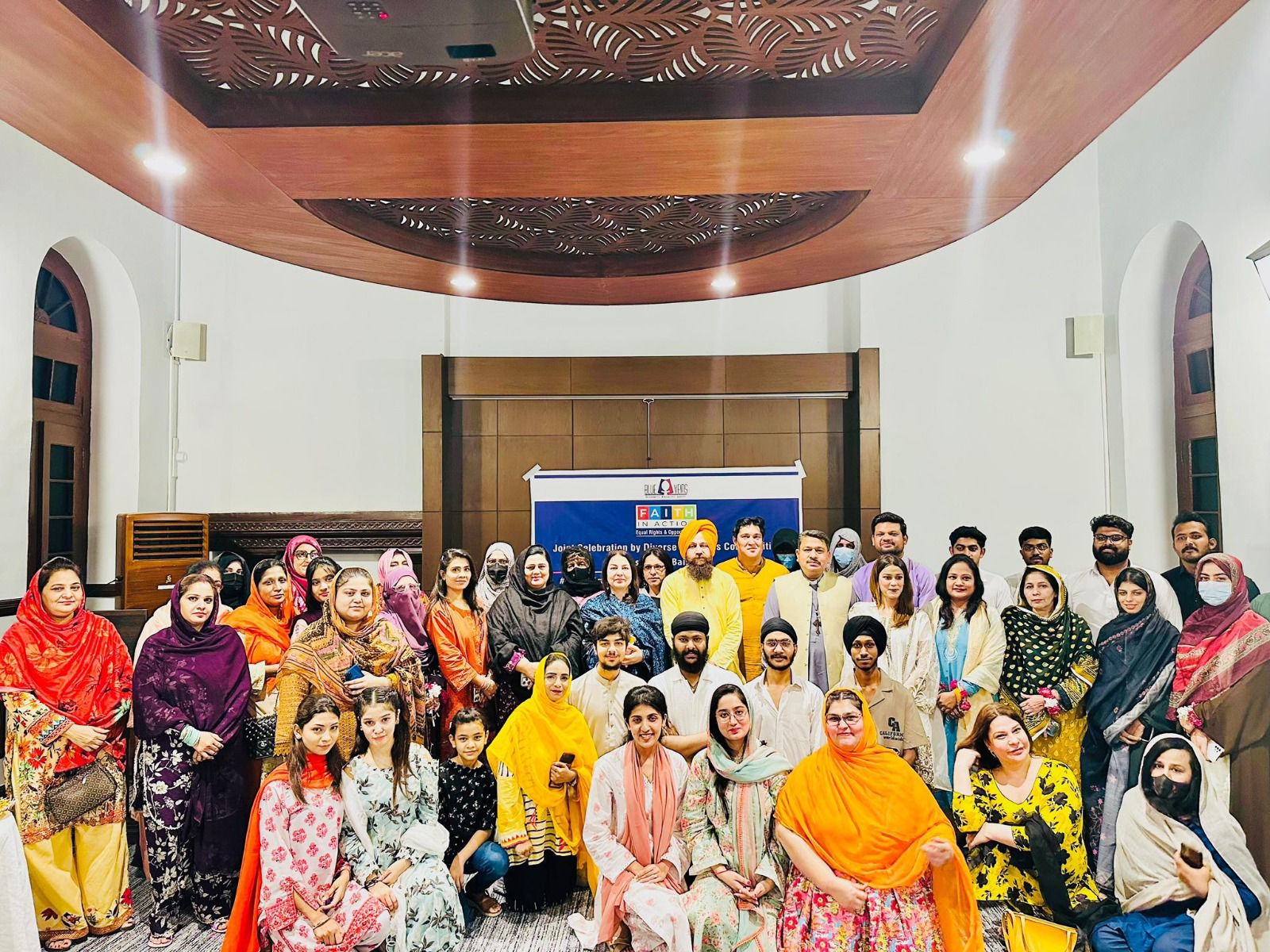By: Basit Khan
PESHAWAR: A display of interfaith unity and cultural celebration unfolded in Peshawar this week, as members of Sikh, Muslim, Hindu, Christian, and other faith communities gathered to mark the joyous festival of Baisakhi. Organized by the civil society organization Blue Veins, the event served as a platform to celebrate diversity, encourage dialogue, and promote peaceful co-existence across religious and cultural lines.
The festival, which commemorates the founding of the Khalsa by Guru Gobind Singh Ji and holds seasonal significance as a harvest celebration, became a vibrant symbol of shared values and mutual respect. Attendees participated in traditional festivities, shared meals, exchanged symbolic cultural items like bangles and gajrey, and engaged in open dialogue centered around themes of renewal, togetherness, and communal harmony.
The event drew enthusiastic participation from representatives of various religious, civil society, and community groups, creating a welcoming space for inclusive engagement.
Member of the Provincial Assembly KP, Baba Gee Gurpal Singh, who honored the event with his presence, highlighted the power of collective celebration:“Joint celebrations like Baisakhi create bridges of understanding among our communities. They allow us to recognize and respect each other’s values, traditions, and identities. It is through such inclusive gatherings that we can collectively promote harmony and build a society where diversity is seen as a source of strength.”
Shaheen Quresh, President of Blue Veins, underscored the importance of creating platforms that transcend religious and social divisions: “This event reflects our ongoing efforts to create inclusive platforms where individuals from all walks of life regardless of faith, gender, or background can come together with dignity and equality. These celebrations are not just symbolic; they are essential for fostering empathy, reducing prejudice, and strengthening the social fabric of our communities.”
Reverend Khushbakht Peter, a Christian priest and interfaith leader, echoed these sentiments: “Baisakhi is more than a cultural event; it is an opportunity to witness and participate in the richness of one another’s traditions. Coming together in such a setting reinforces our collective responsibility to build trust, show compassion, and support peaceful co-existence.”
The event concluded with a powerful reaffirmation from religious scholars, community elders, youth leaders, and civil society representatives to uphold the principles of interfaith harmony, cultural pluralism, and inclusive citizenship across Khyber Pakhtunkhwa. Their shared commitment reflected a broader vision of a just, compassionate, and united society, where diversity is embraced and celebrated.

